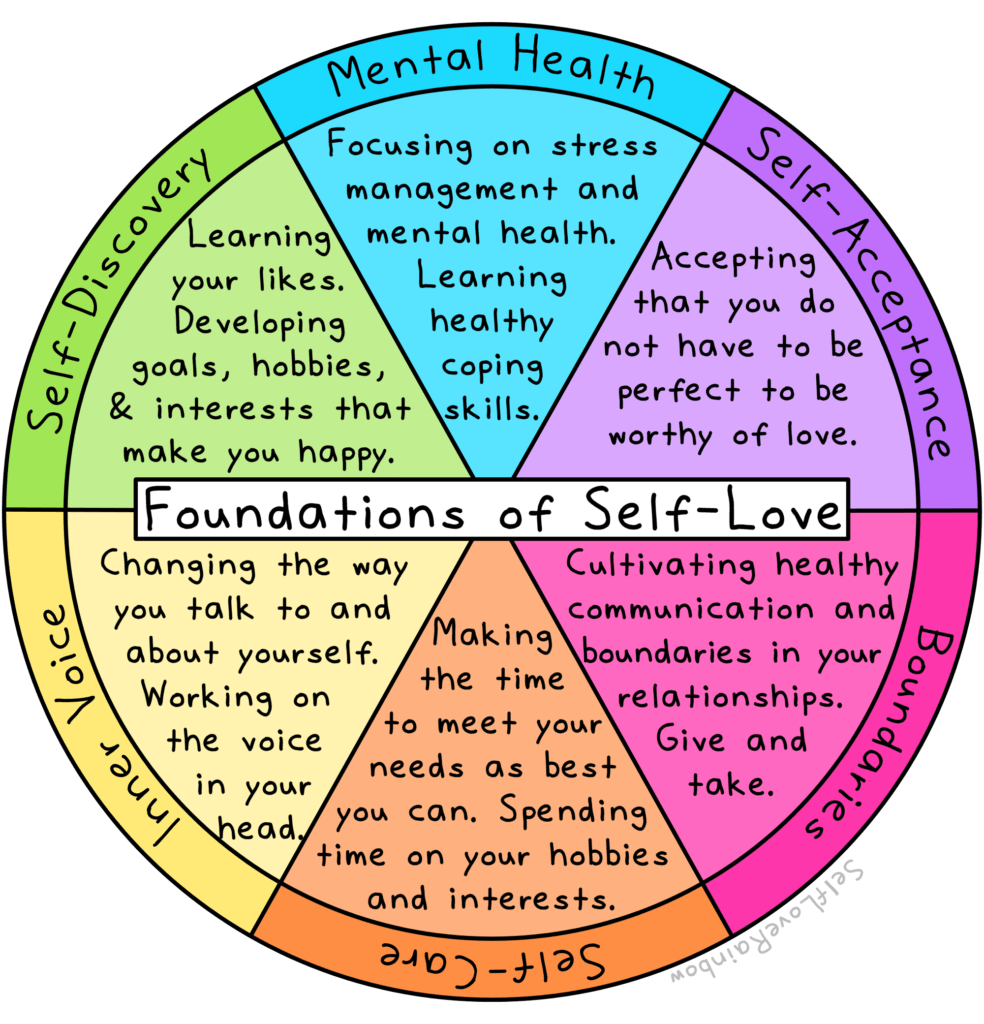Simple Ways to Do Self-Love

Are you currently experiencing stress from work or school? Feeling a bit down and simply not taking good care of yourself enough? Many obligations, such as those related to our families, our personal or professional lives, our commitments, and more, may prevent us from taking care of ourselves. But hey, we’ve all experienced those down moments; it’s okay to feel them. However, despite our moods, taking care of ourselves should still be a top concern.
So allow me to share with you some of my ways of loving myself so that you can also slay another day!

What is self-love?
Self-care or self-love is a term that can have different meanings to different people, but at its core, it simply refers to taking care of your physical, mental, and emotional needs.
The way some people choose to do this varies depending on what makes them feel good and cared for personally. While it’s nice to have others make us feel comfortable, in some stressful or depressing circumstances, it’s crucial that we feel empowered to take care of ourselves as well.
Why is Self-Love Important?

In order to cultivate resilience against those stressors in life that you cannot avoid, self-care is essential. You’ll be better able to live your best life once you’ve taken care of your body and mind.
Sadly, a lot of individuals see self-love as a luxury rather than a necessity. As a result, they are left feeling overloaded, burned out, and unprepared to deal with life’s inevitable challenges.
Self-love doesn’t always have to involve a big gesture or activity. Self-love can occasionally be as easy as setting aside some time during stressful periods to practice relaxation exercises. Scheduling “me” time, or alone time to think about your day and your feelings, is a form of self-love.
The self-love strategy that works for one individual might not work for another. But it’s important to establish a specific self-care routine in a number of areas to ensure that you’re caring for your mind, body, and soul.
How can one practice self-love?

Make sleep a priority

Your immune system and mood depend on it.
Sleep is always an important component of maintaining our health and well-being. In fact, several aspects of the immunological response in the body only take place when we are asleep.
As sleep deprivation can increase our sensitivity to the impacts of stress and speed up our emotions, scientists found that sleep is one of the best strategies to help manage stress. Last but not least, sleep is necessary for the brain to function; otherwise, you’ll lack patience and concentration, make bad choices, and exhibit increased moodiness, irritability, and emotionality.
Decide what is important to you

Make a list of the various facets of your life and the main tasks you partake in each day. You can list tasks you have to complete for work, school, family, or other commitments. It will be easier for you to decide how to spend your time if you keep an eye on your priorities.
Identify your own personal stress signs

Knowing when you’re becoming overwhelmed or overworked can help you develop micro habits that will save you from completely burning out.
For instance, take it as a cue to ask yourself what you need if you start to scold your friends, become frustrated with schoolwork and start cursing, get caught in traffic, and start to develop headaches. Maybe you should roll your shoulders a few times or take a deep breath before going for a quick stroll or getting back to work.
It involves developing self-awareness and mindfulness so that you can assess the situation, make necessary adjustments, and remain calm.
Do exercises

Maintaining physical fitness lowers your risk of developing chronic health conditions as well as the likelihood of contracting acute diseases. Furthermore, it enhances your sense of well-being. Exercise improves focus, sharpens our mind, and promotes restful sleep by releasing endorphins, the feel-good hormones. Additionally, maintaining an active lifestyle boosts energy and elevates mood in general.
You may go for an hour-long run, take a morning walk outside, or perhaps do some housework that will also likely make you sweat and be physically active.
Practice healthy eating habits

Regular eating might improve your mood. As our relationship with food has the power to improve our sense of balance in life, good nutrition is self-care. This is evident in how well your diet is balanced, diverse, and acting as your fuel.
Treat Yourself

Of course, treating yourself is a form of self-love, whether you want to go out with friends, watch a movie by yourself, drink coffee in a nice coffee shop, or simply take a nice warm bath.
Treating ourselves the way we want to be treated shows great care for one’s own wellness and happiness because self-love is a feeling of appreciation for ourselves that emerges from actions that support our physical, psychological, and spiritual growth.
Angelika is an aspiring producer and writer with a love for film and media production. She enjoys writing on a diverse range of topics, including lifestyle, health, and movie-related content. She likes to cook for her family and spend her free time with friends.





